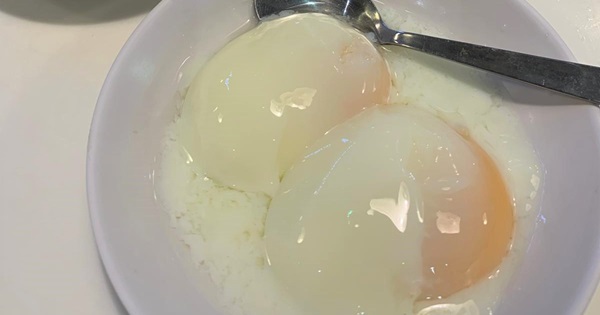Introduction
Have you ever wondered why eating raw or soft-boiled eggs is common in Singapore but sometimes surprising to our friends from other countries? We can find soft-boiled eggs paired with kaya toast, and raw eggs added to porridge and noodles in almost every coffee shop and hawker centre. Raw eggs are also common in Japanese and Korean cuisine, as well as in some desserts and condiments like tiramisu and mayonnaise. So why do people feel comfortable eating eggs raw in Singapore? is it actually safe?

A common sight at many coffeeshops in Singapore: soft-boiled eggs.
Dangers of Raw Eggs
Salmonella is a bacteria commonly found in chickens and eggs. Salmonella is a leading cause of food-borne illnesses worldwide and Salmonella infections are often linked to the consumption of eggs, specifically Salmonella Enteritidis (SE). This is why consumers in other countries cook eggs thoroughly before eating them.
SFA has conducted a risk assessment of Salmonella in Singapore taking into consideration our population’s habit of soft-boiled egg consumption. Imported eggs must come from approved sources in accredited countries and regions that meet Singapore’s food safety and animal health standards. As part of our accreditation criteria and import conditions, farms must be free from SE. Local egg farms must also have in place good farm management practices and strong biosecurity measures to prevent the risks of SE contamination. These include having a grading system to remove soiled and/or cracked eggs, and regularly testing their hens for SE to remove eggs of SE-infected flocks from sale. Both imported and local eggs are subject to our food safety surveillance programme, which includes inspection and testing. If SE is detected through our tests, the farm will be suspended until the SE contamination issue is rectified.
It is precisely because of these stringent requirements that it is relatively safe to eat raw or lightly cooked eggs in Singapore. Nevertheless, as there is always risk associated with eating raw eggs, we advise consumers to avoid consuming eggs raw, especially if they are from a vulnerable group, such as the young, immunocompromised, pregnant, and elderly.
How can we reduce the risk of food poisoning caused by Salmonella in eggs?
Consumers can also play a part in protecting themselves. Salmonella can be present inside the eggs, as well as on the eggshells. While we cannot tell if eggs are contaminated with Salmonella just by looking at them, we can take steps to reduce our risk of Salmonella infection from eggs. Here’s what you can do:
-
Be aware of the risks of consuming raw food. As a general precaution, vulnerable groups, particularly young children, pregnant women, the elderly, or people who are immunocompromised or with chronic illness such as diabetes, may be more susceptible and should exercise caution by avoiding the consumption of raw food, including eggs.
-
Purchase eggs from SFA-approved businesses (farms, importers, retailers)
-
Check and ensure that the shells are clean, free from faecal contamination and not cracked.
-
Cook the eggs thoroughly until both the yolks and whites are firm. Runny egg whites or yolks may still contain bacteria.
-
Eat eggs or dishes containing eggs as soon as possible after they are cooked. Refrigerate (below 4°C) food containing eggs promptly to avoid the growth of bacteria that may be present in the dish.
-
Wash your hands thoroughly with soap before and after handling eggs to prevent the risk of cross-contamination.
-
Use separate crockery and utensils for raw eggs and ready-to-eat/cooked food.
-
Consider using pasteurised eggs for dishes that require raw or lightly cooked eggs as pasteurisation eliminates harmful bacteria through heat treatment. These include desserts such as tiramisu, and sauces and dressings such as hollandaise sauce.
-
When traveling overseas, be mindful that the eggs there may not be free of Salmonella and may not be suitable for raw consumption.
About the Author
Herman Teo is a Senior Scientist from the Risk Assessment and Communications Department of the National Centre for Food Science. With a Masters in Food Science and Human Nutrition from the National University of Singapore, his recent work includes the regulatory framework for insects for food and feed, and examining emerging food processing risks.